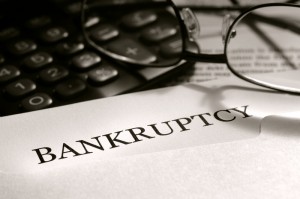 After completing a bankruptcy case a discharge order is signed by a judge. This order prevents creditors from attempting to collect the debts discharged in the bankruptcy case. However, the order is worthless if it isn’t enforced against creditors who attempt to collect from the debtor. If a debtor receives a discharge and is then subsequently sued by a creditor listed in the bankruptcy then they must take action to protect themselves. First, file an answer to the petition. Make sure that in the answer you state that the creditor cannot collect the debt from you because the debt was discharged in a bankruptcy case. This is called an affirmative defense. If discharge is listed as a defense in the answer then the lawsuit should end in the debtors favor.
After completing a bankruptcy case a discharge order is signed by a judge. This order prevents creditors from attempting to collect the debts discharged in the bankruptcy case. However, the order is worthless if it isn’t enforced against creditors who attempt to collect from the debtor. If a debtor receives a discharge and is then subsequently sued by a creditor listed in the bankruptcy then they must take action to protect themselves. First, file an answer to the petition. Make sure that in the answer you state that the creditor cannot collect the debt from you because the debt was discharged in a bankruptcy case. This is called an affirmative defense. If discharge is listed as a defense in the answer then the lawsuit should end in the debtors favor.
After filing an answer the debtor’s bankruptcy lawyer should file an adversary proceeding in the bankruptcy court to enforce the discharge order. This is a lawsuit against the creditor in the bankruptcy court for violating the court order. The creditor will most likely be ordered to reimburse the debtor for any out of pocket costs associated with enforcing the discharge order. In addition, the creditor may be sanctioned and have to pay the debtor for the violation.
It is good that there are mechanisms in place that protect a debtor from creditors who violate the law and attempt to collect against discharged debtors, but I imagine some readers think that this all seems like a big hassle. I agree. Luckily, adversary proceedings to enforce discharge orders are rare. Creditors generally understand that if their claim was discharged in bankruptcy then they should not attempt to collect from the debtor. To do so could have consequences. The few discharge violations I have come across were usually the result of the creditor not getting notice of the bankruptcy case. Once notice is given the lawsuit is usually dismissed.